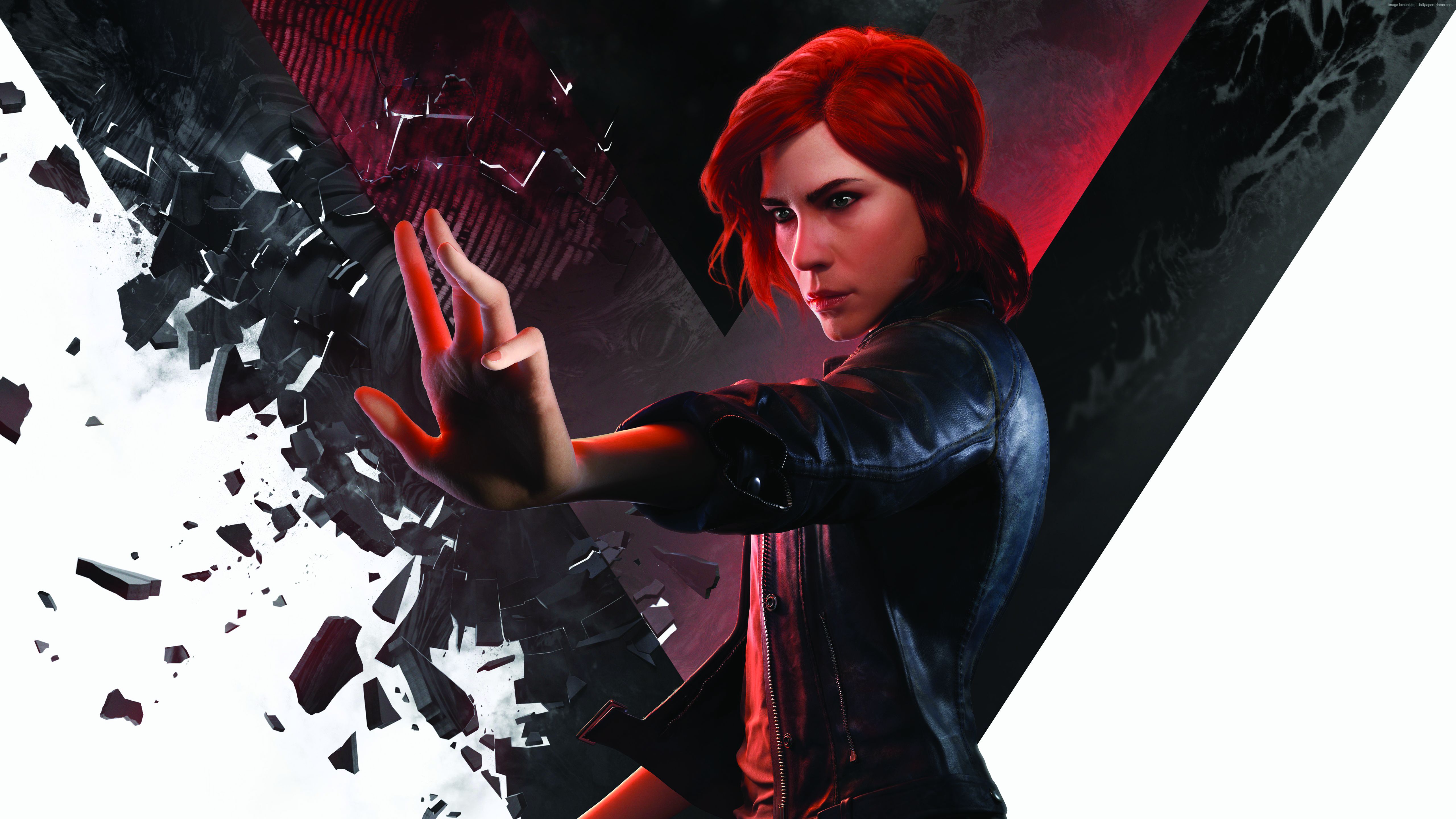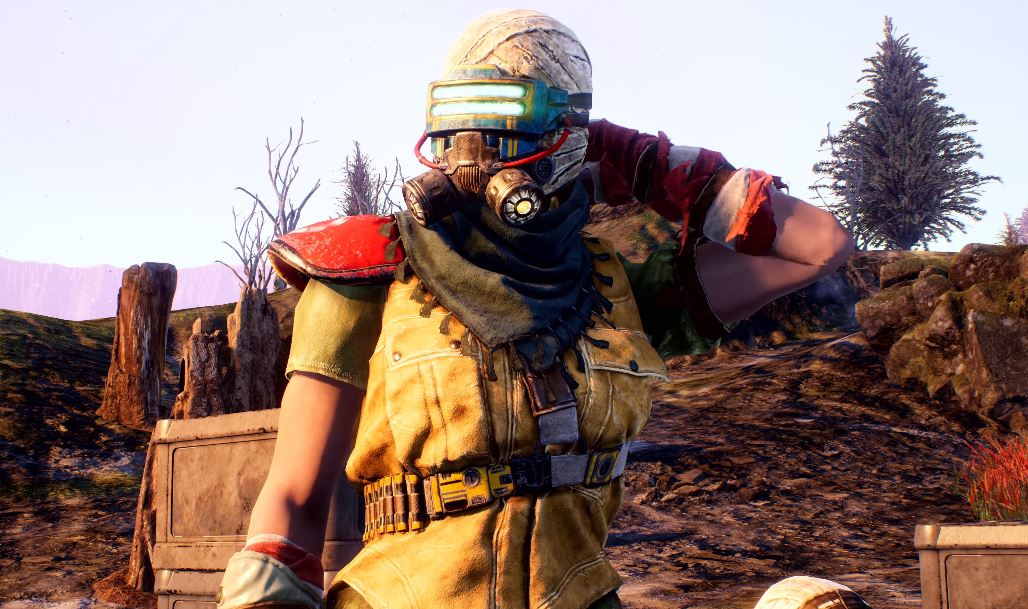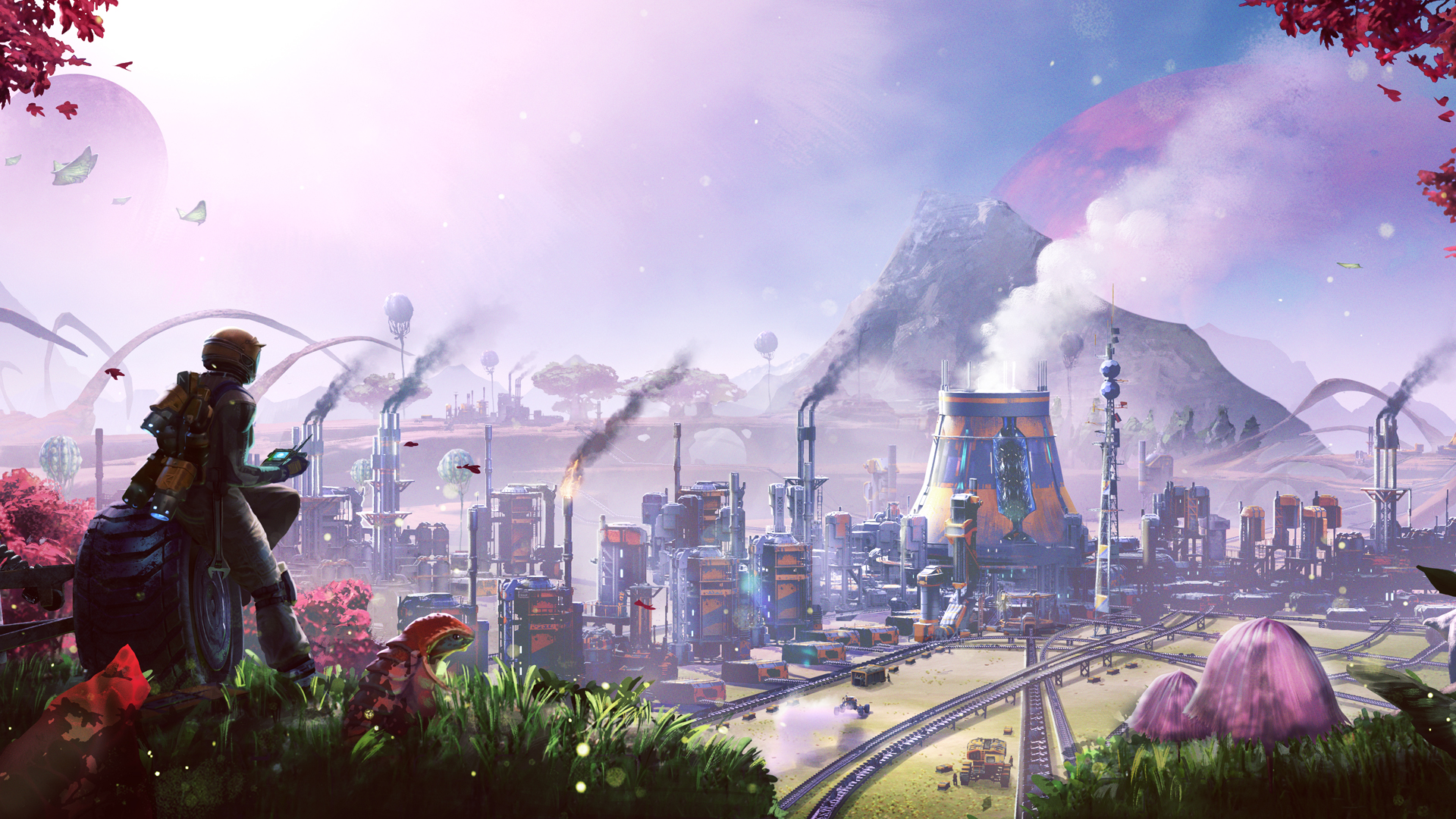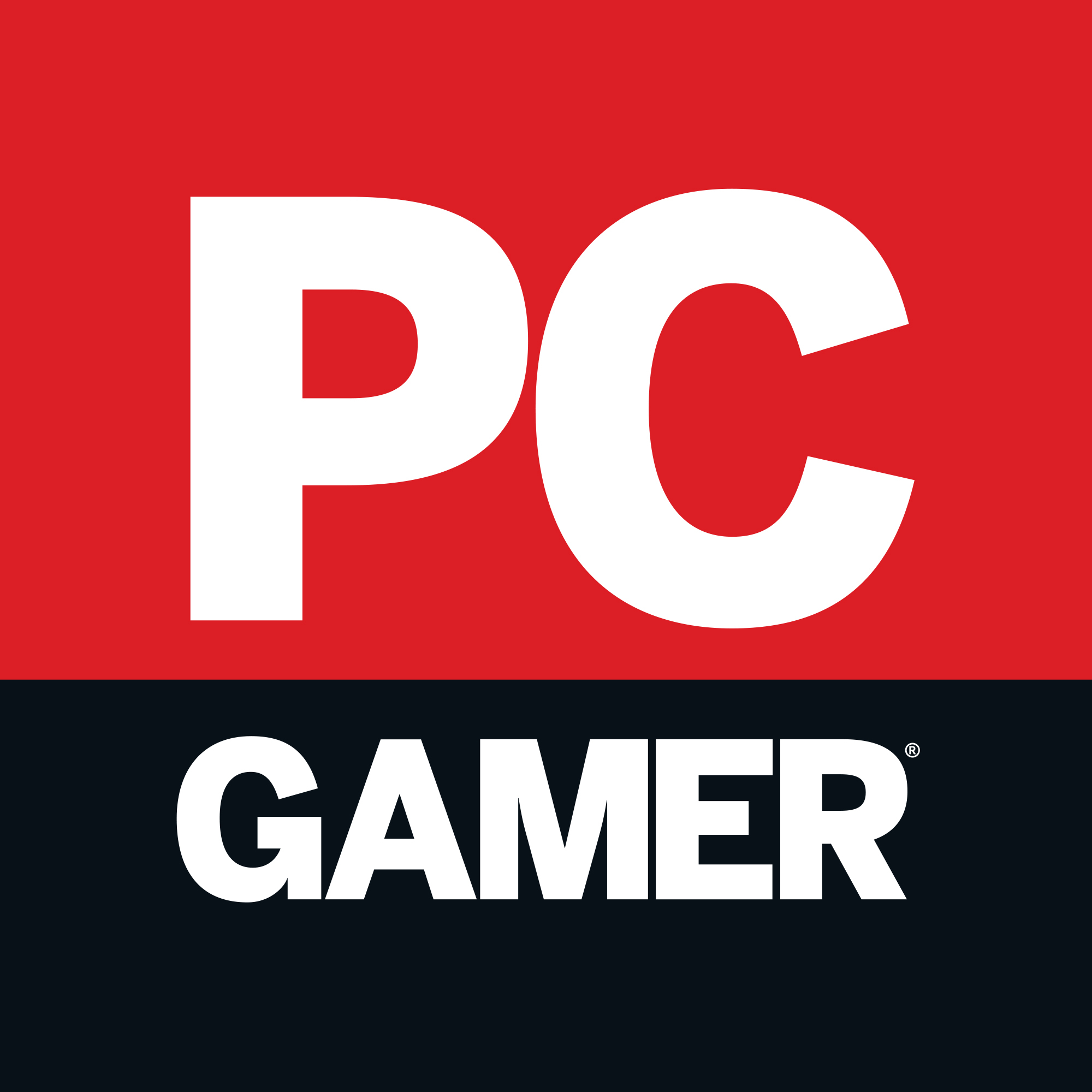
Epic says that for its store to compete with Steam, it needs games Steam doesn't have. To that end, the Fortnite megacorp has been making year-long Epic Games Store exclusivity deals, most recently with The Outer Worlds and Control. That has predictably irritated many PC gamers who are used to Steam and don't want to switch to a different launcher for different games. (Though that's already commonplace on account of Origin, Battle.net, and so on.)
But is Epic's strategy more than just an inconvenience? Is it actually detrimental to PC gaming as a whole? That's the topic of our mid-week PCG Q&A. Our answers are below, and feel free to add yours in the comments (while sticking to our commenting rules).
Samuel Roberts: Who is it better for?
I don't actively think they're bad, nor does the idea of them keep me up at night. I even speculate if Epic's approach has allowed previously console-only games to make the leap to PC, as is the case with the Quantic Dream games and Journey coming to PC. I'm not adverse to having more launchers on my taskbar, and this is not a new phenomenon, when you consider Ubisoft and EA's requirements that you use their platforms (even if you could buy Ubisoft games on Steam too until The Division 2). I will say this, though: I don't see how they're good for players. An Epic exclusive is there to tempt you into using that store. But what is the experience of buying that doing for you that Steam isn't? I think that is a question worth asking.
Exclusives are now being used as major marketing plays. I think it's good for Valve that Epic is there to eat its lunch on some of this year's biggest games, and possibly get it to be a more active competitor. But for the customer paying $60 for a game, I don't see what the benefit is to them, save for maybe a slightly cheaper copy of Metro Exodus (but only if you live in the United States—we didn't get that offer in Europe). They're just using a different store, because somebody, somewhere made a deal.
The end result, at most, is some mild inconvenience by opening another launcher, that's true. But while the increased revenue cut makes the Epic Games Store attractive to developers (and fair enough, that's a great result), there isn't an immediately apparent upside to the customer. It's just a store war.
Jarred Walton: It's more of the same
Is anyone going to say store exclusives are truly harmful to end users? Inconvenient, sure, and I suppose every additional app we have to install is a potential security hole. But store exclusives just feel like part of the 2019 PC gaming market. A particular game could be hurt or helped by an exclusive, especially a paid exclusive, but as long as a game is available for PC, the storefront doesn't really matter to me.
The largest publishers already have their own storefronts, and I've begrudgingly purchased games on every digital distribution platform, including the Windows Store. I only died a little inside.
Keep up to date with the most important stories and the best deals, as picked by the PC Gamer team.
Steven Messner: Exclusives are already everywhere
As others pointed out, we already live in a world full of exclusive PC games. If we didn't, I wouldn't need the Windows Store to play Forza Horizon 4, Origin to play Battlefield 5, GOG to play some of my favorite retro games, the Epic Store to play Fortnite, Battle.net to play WoW—the list just goes on and on.
I get that Epic is a lackluster storefront that has a long way to go, and them stealing games like Metro Exodus at the last second is a little gross, but also that's capitalism at work. It seems silly to be mad at a company for using its capital to expand its business. On the other hand, Steam's monopoly on PC gaming is worrisome to me, even if it provides a lot of great infrastructure for developers to build off of. There are a lot of nuances that are worth talking about, but I just don't think arguing over exclusivity is one of them. Especially when we've already spent the last decade merely grumbling about it (and even then, I can't remember the last time I was pissed just because I had to boot up Origin).

Phil Savage: The even-handed take
It's not something I'm going to get worked up about, given that most PC digital storefronts have exclusive games. EA and Valve both sell their games exclusively through their stores, and we're hardly mad about that. (Now, at least. People were very mad at the time, but it's been nearly 16 years since Counter-Strike became a Steam exclusive and people seem to be over it.)
Even more games are de facto exclusives, like the Total War series, which has yet to leave Steam, or the Ultima series, which is only available through GOG. This, perhaps, is a deeper reason why the Epic exclusives have prompted such a backlash. It's one thing to attract exclusives by reputation, or features, or carving out a specific niche in the marketplace, or even just being the company that makes the game that you're selling, but the Epic Store isn't there yet. I don't really know what the store offers me, beyond the solution to a problem it created by buying up a bunch of exclusives.
As Steven points out: yup, that's capitalism at work. But—and this is probably beyond the remit of the question—capitalism doesn't have the best reputation for looking after the interests of people. I'll use the Epic Store, and be happy for developers like Obsidian, Remedy and Snapshot Games, who, thanks to the deal, are likely in a much safer position to support their games. But I also think its fine to be critical of Epic's approach, and of the Epic Store's need create some form of identity or purpose.
Joanna Nelius: What's the big deal?
I find the overreaction to certain PC games being exclusive to one digital storefront silly. We've had both platform exclusively and storefront exclusivity for a while now, and the more important thing is platform exclusivity. That's been changing for the better recently, with more developers porting their games to PC. Detroit: Become Human is coming to the Epic Store, for example, and the Halo games are coming to Steam.
As long as a game is on PC, why is such a big deal if we can only get it on Epic or Steam, or Origin or Battle.net? I guess in the era of being able to buy anything we want from a single online storefront—cough, Amazon, cough—we've grown used to the convenience of accessing our digital library of games from a single launcher. (You know how we used to access all our games from a single place? We walked over to our bookshelves.)
Just tell me where to buy a game and I'll go there to get it.
Tom Senior: Store exclusives are annoying but they can't last
Steam probably isn't just your go-to shop, it's probably where your gaming network lives. If you're used to using the Steam community to see what your friends are playing, and to jump into games when you see friends online, then being forced to use a store without those features does kinda suck. Likewise, pre-ordering a game on Steam and having the game switch stores at the last minute is a poor way to treat customers, though that is a lesson Epic seems to have learned with Metro: Exodus.
Exclusives are blunt tool for crowbarring your way into a market, but at least Epic's store rewards customers with decent rotating free game downloads. As Epic has hinted, these exclusives aren't necessarily sustainable in the long term, so we're probably seeing a quick sprint for a year as Epic establishes the store and gets the client onto as many PCs as it can. Sure, it's annoying, but I also like the idea that developers take a greater cut of their sales with Epic, and the competition may end up pushing Valve to upgrade the Steam experience a little faster.

Tyler Wilde: This is sports
I think of Steam and the Epic Store the way I think of sports teams: I'm not a fan of making team owners richer, even if that's ultimately what I do by being a fan. I'm not about to get my Sharks jersey signed by the billionaire who's buying houses with my ticket money. I'm a fan of the players.
Game developers are the players here (it's a slightly confusing metaphor, I admit), and so I care about them, not whether Gabe Newell or Tim Sweeney gets richer. Steam's a better platform at the moment, but I like Remedy and if selling Control on the Epic Store helps Remedy right now, then sure, that's great. If these exclusives eventually result in every developer getting a bigger revenue share, then that's even better. If it all falls apart and ultimately harms developers, then I'll be very unhappy with Epic—I just haven't seen any evidence that that's where things are heading.
As for us, obviously we should fight back against anything that hurts our ability to enjoy the games we want to, and be critical of both Valve and Epic. So far, though, I'd characterize these exclusives as mild inconveniences. I can live with mild inconveniences if they help studios like Remedy continue to produce things I like.
James Davenport: The exclusives war will rage on until the end of time
Digital storefronts trading AAA breadwinners like artillery fire, We The Consumers dragging our feeble arms across mouse pads to open the fifth launcher of the day, the erasure of hope when our children look up and ask "Daddy, mommy? Why can't I see my saves in the cloud?" How do we answer? There is no cloud, my child. The sky is clear and bright and it burns.
I'll weather the blaze from my bunker, which is just a subreddit full of people who agree with me.
The collective PC Gamer editorial team worked together to write this article. PC Gamer is the global authority on PC games—starting in 1993 with the magazine, and then in 2010 with this website you're currently reading. We have writers across the US, UK and Australia, who you can read about here.


